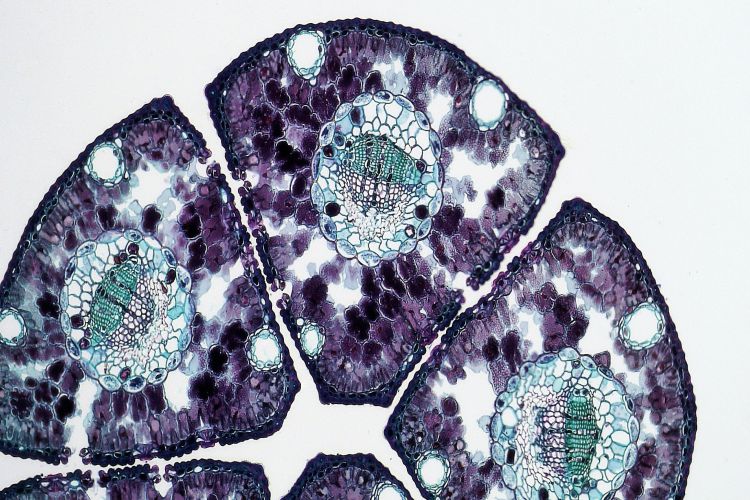 In the dynamic world of medical research and innovation, scientists are immersing themselves in the study of exosomes, tiny vesicles that play a pivotal role in cell-to-cell communication. Once perceived as cellular waste, these minuscule, membrane-bound structures are now recognized as potent carriers with significant therapeutic capabilities.
In the dynamic world of medical research and innovation, scientists are immersing themselves in the study of exosomes, tiny vesicles that play a pivotal role in cell-to-cell communication. Once perceived as cellular waste, these minuscule, membrane-bound structures are now recognized as potent carriers with significant therapeutic capabilities.
Understanding Exosomes:
Exosomes, tiny vesicles ranging from 30 to 150 nanometers in diameter, are actively released by cells into the extracellular space. Initially relegated as cellular debris, scientists now highly regard exosomes for their pivotal role in facilitating intricate cell communication.
These nanocarriers proficiently transport proteins, lipids, and genetic material, functioning as messengers that intricately influence various physiological processes within the cellular milieu. This nuanced cellular communication underscores the profound significance of exosomes in orchestrating the seamless interplay of biological information among cells.
Source and Isolation:
Derived from diverse cell types, including stem cells and immune cells, exosomes are isolated from biological fluids like blood and urine. This process involves refining isolation techniques, such as ultracentrifugation and chromatography, which have significantly advanced.
These advancements not only enhance the efficiency of isolation but also ensure the acquisition of purer and more concentrated exosome preparations, crucial for both research and clinical applications in the ever-expanding field of therapeutic exploration.
Therapeutic Applications:
Exosomes’ therapeutic prowess stems from their unique capacity to transport bioactive molecules and genetic material between cells, unlocking a diverse array of treatment possibilities. Researchers fervently investigate exosomes for drug delivery, regenerative medicine, and targeted therapy, envisioning a future where these versatile nanocarriers revolutionize the landscape of medical interventions.
The intricate interplay of exosomes in cellular communication presents a compelling avenue for addressing various health challenges, offering a promising frontier in the ongoing quest for innovative and personalized healthcare solutions.
Drug Delivery:
Engineered exosomes, sophisticated vehicles at the forefront of drug delivery, carry therapeutic payloads such as drugs and proteins precisely to target cells, offering substantial advantages over traditional methods. By adeptly evading the immune system, exosomes navigate through biological barriers, ensuring the direct delivery of cargo to cells.
This precision not only minimizes side effects but also significantly enhances treatment efficacy, marking a transformative stride towards more effective and targeted therapeutic interventions in the realm of medical innovation.
Regenerative Medicine:
Stem cell-derived exosomes exhibit tremendous promise in regenerative medicine, encapsulating a unique blend of growth factors, proteins, and microRNAs crucial for promoting tissue repair.
Ongoing research is actively exploring the potential of exosomes to stimulate tissue regeneration in critical conditions such as myocardial infarction, neurodegenerative diseases, and bone injuries, offering a beacon of hope for patients grappling with these challenging medical conditions.
The intricate properties of these exosomes may unlock transformative therapies that go beyond conventional treatment approaches, heralding a new era in regenerative medicine.
Cancer Therapy:
Dendritic cell-derived exosomes are being actively explored as cancer immunotherapies, constituting a groundbreaking approach in the evolving landscape of exosomes therapy. These exosomes carry tumor antigens, playing a vital role in training the immune system to recognize and target cancer cells.
This innovative strategy not only stimulates the immune response but also exhibits the potential to address the challenges posed by conventional cancer treatments like chemotherapy and radiation therapy.
Early studies indicate that exosome-based cancer vaccines have the potential not only to enhance the body’s natural ability to combat cancer but also to potentially minimize side effects and improve overall treatment outcomes. This marks the advent of a new era in cancer therapy, characterized by more effective and precisely targeted interventions.
Challenges and Future Directions:
While the potential is promising, it is imperative to address challenges to effectively translate exosome findings into clinical applications. Standardizing isolation methods, understanding exosome distribution in the body, and ensuring the safety of engineered exosomes are critical considerations. Ethical concerns, particularly regarding exosomes from cancer cells, require careful examination.
Looking ahead, ongoing research will likely uncover more about exosome biology and therapeutic applications. Collaborative efforts among scientists, clinicians, and industry partners are essential to advancing the field and bringing exosome-based therapies to the forefront of medical practice.
Conclusion:
Delving into the complexities of cellular communication, exosomes emerge as promising players in therapeutic innovation. Their capacity to transport bioactive molecules and genetic material between cells opens new avenues for treating once-considered untreatable diseases. Despite remaining challenges, exosomes’ therapeutic potential offers a glimpse into a future where personalized and targeted therapies revolutionize medical care. The journey to harness the full power of exosomes is underway, promising transformative breakthroughs in the field of medicine.




